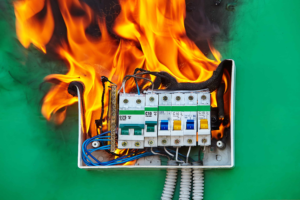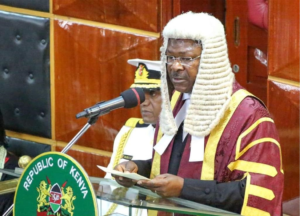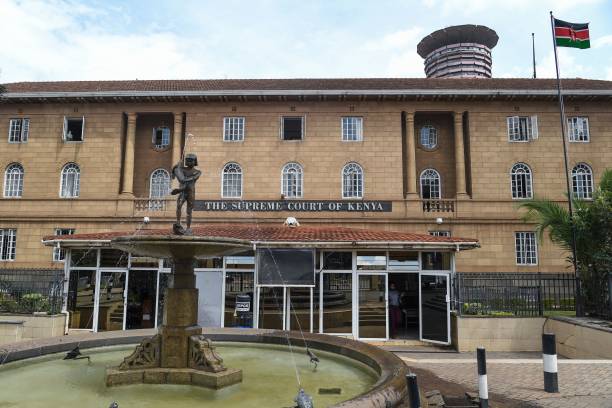
A general view of the Supreme Court of Kenya in Nairobi on March 31, 2022. - Kenya's top court ruled on March 31, 2022 that President Uhuru Kenyatta's push to change the constitution was illegal, dealing a blow to him and his allies ahead of crucial elections in August. (Photo by Tony KARUMBA / AFP) (Photo by TONY KARUMBA/AFP via Getty Images)
The Judiciary is one of the three State organs established under Chapter 10, Article 159 of the Constitution of Kenya 2010. It establishes the Judiciary as an independent custodian of justice in Kenya. Its primary role is to exercise judicial authority given to it, by the people of Kenya.

For much of Kenya’s history, judicial independence has been a myth. In colonial times, judges served at the pleasure of the Crown and lacked independence.President Moi exercised extensive and deep control over civic groups, trade unions, the press, the Parliament, and most critically, the judiciary
Perhaps the lowest point for the judiciary came during the dispute over the 2007 presidential elections.In the aftermath of the violence, an independent judiciary was a top priority for reformers, who had been battling for constitutional and judicial reform for more than 25 years.In many ways, the 2010 constitution was a reset of the one promulgated at independence and undid many of the ruinous amendments the political class had inflicted on Kenyans.
During his tenure,the late president mwai Kibaki was under intense international and local pressure, to withdraw his nominations, for Chief Justice, Attorney General and Director of Public Prosecutions which had been declared illegal by the High Court .
The simmering conflict between Kenyan President Uhuru Kenyatta and the country’s judiciary over the supremacy of the constitution burst into the open.
Kenya kwanza government slammed the Judiciary, led by Chief Justice Martha Koome, accusing the arm of government for not taking into account public interest principle in its decisions after the High Court to suspend the implementation of the new Finance Act 2023.“It is true that the Judiciary must be independent, and it is also true that its independence is guaranteed within the Constitution. But it is also important that the Judiciary becomes alive to what we call public interest. Public interest should always be taken into account when courts are pronouncing themselves on certain key matters.”
Judicial independence is Kenya’s last buffer line, stopping the country from degenerating into absolute tyranny. (1) In the exercise of judicial authority, the Judiciary, as constituted by Article 161, shall be subject only to this Constitution and the law and shall not be subject to the control or direction of any person or authority
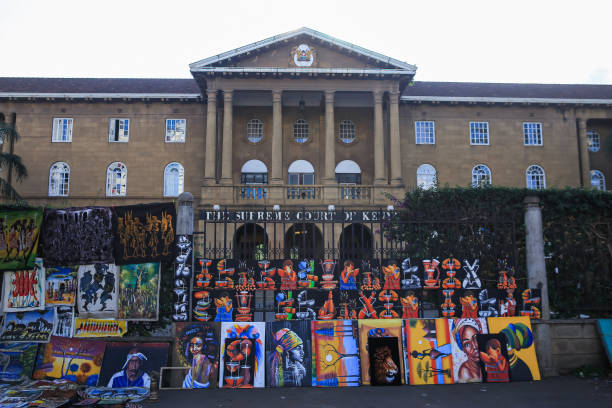
2) The office of a judge of a superior court shall not be abolished while there is a substantive holder of the office.(3) The remuneration and benefits payable to or in respect of judges shall be a charge on the Consolidated Fund.(4) Subject to Article 168(6), the remuneration and benefits payable to, or in respect of, a judge shall not be varied to the disadvantage of that judge, and the retirement benefits of a retired judge shall not be varied to the disadvantage of the retired judge during the lifetime of that retired judge.(5) A member of the Judiciary is not liable in an action or suit in respect of anything done or omitted to be done in good faith in the lawful performance of a judicial function.
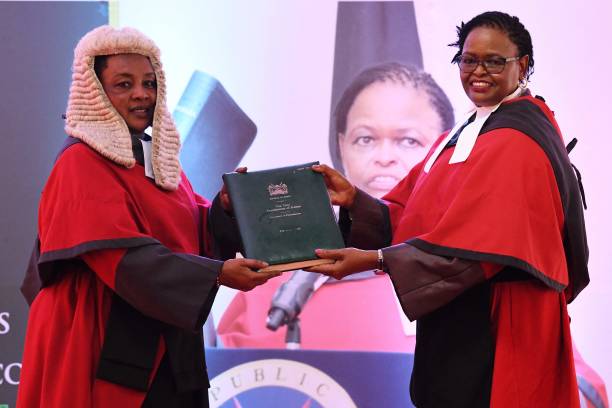
According to an advocate of the high court of Kenya Daisy Leah Wakoli ,the Judiciary, as constituted by Article 161, shall be subject only to this Constitution and the law and shall not be subject to the control or direction of any person or authority.She further states that” conflict between the judiciary and government comes in when the government attempts to interfere with the decisions of the court by defying court orders,adding that the conflict can only be solved through checks and balances between the government and judiciary”.
In conclusion, Judicial independence is a collective national good. It will be protected as such. So long as we may have an independent Judiciary, the great interests of the people will be safe.

